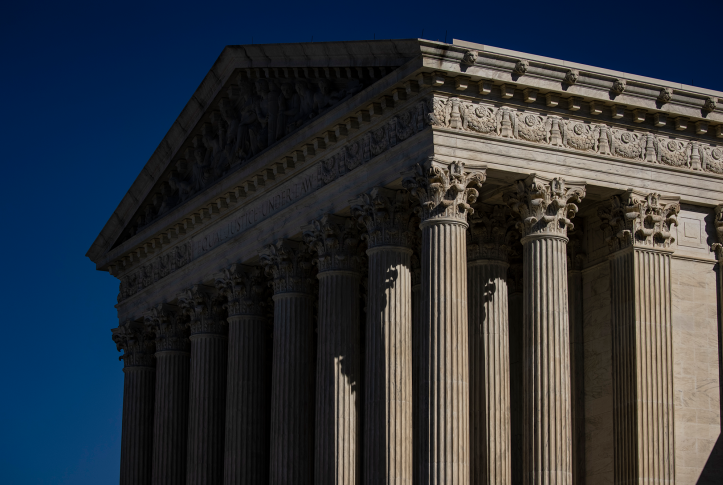In the next few weeks, the U.S. Supreme Court will release its opinion on California v. Texas, which reviews a decision by Texas federal district judge Reed O’Connor invalidating the Affordable Care Act. I expect the Court will uphold most — perhaps almost all — of the law. Going forward, the Supreme Court may never again hear a challenge to the entire ACA, but this does not mean the end of ACA litigation or that the law is now secure.
Challenges to various provisions and rules implementing the ACA continue, particularly in the Texas federal district courts. These challenges are typically not based on administrative irregularities under the Administrative Procedures Act or on statutory grounds — like most challenges brought against Trump administration regulations — but on the Constitution. Consequently, adverse rulings cannot be remedied simply by amending a rule or statute.
Moreover, the decisions of the Texas District Courts are appealable to the Fifth Circuit Court of Appeals, perhaps the most conservative court in the country. A decision by District Court Judge O’Connor held that transgender individuals were not protected by Section 1557 of the ACA, which prohibits discrimination based on race, color, national origin, gender, age, or disability, and vacated the Obama administration’s rule prohibiting discrimination based on gender identity as gender discrimination. The plaintiffs appealed, arguing that Judge O’Connor’s decision did not go far enough since it did not protect the plaintiffs from future regulations under Section 1557 that could require the provision of gender-transition surgery. The appeal was heard on March 4.
On February 25, Judge O’Connor refused to dismiss a lawsuit challenging the ACA’s mandate that requires preventive services, as designated by the U.S. Preventive Services Task Force (PSTF), the Advisory Committee on Immunization Practices (ACIP), and the Health Resources and Services Administration (HRSA), to be covered by insurers and employer health plans without cost-sharing. Judge O’Connor refused to dismiss the plaintiffs’ claims that the ACA provision violates the Constitution in three respects. First, plaintiffs claim that members of the PSTF, ACIP, and HRSA are officers of the federal government and not properly appointed under the Constitution’s Appointments Clause. Second, they claim that the ACA unconstitutionally vests executive power in these agencies, which are not subject to presidential control. Third, plaintiffs claim that the ACA unconstitutionally delegated authority to these bodies without imposing any limits on their discretion. Judge O’Connor refused to dismiss their claim that the preventive services requirement violates the Religious Freedom Restoration Act and has not yet entered a final judgment upholding these claims, but his predisposition is clear.
On February 25, another Texas district court judge held that the Centers for Disease Control and Prevention’s national moratorium on evictions during the COVID-19 pandemic is unconstitutional. The decision claimed that the Interstate Commerce Clause does not include the power to impose such a moratorium because evictions are not economic activity subject to congressional regulation and take place within states, not in interstate commerce. In NFIB vs. Sebelius, the case that challenged the constitutionality of the ACA’s individual mandate, the majority of justices concluded that Congress lacked the authority under the Interstate Commerce Clause to require people to be insured, but the Supreme Court has routinely upheld laws regulating most economic transactions. Under a greatly restricted definition of interstate commerce, other provisions of the ACA could be challenged.
Another trend in Texas decisions is using the Religious Freedom Restoration Act (RFRA) to trump all other civil rights protections. In addition to the preventive services case, Judge O’Connor allowed a case to go forward as a class action that claims a federal statute prohibiting discrimination against medical personnel who perform or assist in the performance of abortions violates RFRA.
This judicial activism threatens not only existing ACA provisions and rules, but also President Biden’s health reform initiatives. A Trump-appointed Texas judge has already entered a preliminary injunction against President Biden’s 100-day hold on some deportations.
There seems to be a trend:
- private plaintiffs — often the same ones — or the Texas Attorney General file cases before Judge O’Connor or other deeply conservative judges, challenging progressive statutes and regulations under the Constitution or under RFRA as a “superstatute” (i.e., a statute that attains a near-constitutional status);
- the district court holding the statute or regulation unconstitutional or in violation of RFRA;
- the Fifth Circuit Court of Appeals upholding the judgement; and/or
- cases come before the Supreme Court, which has a strong consevsative majority.
These cases will often involve preliminary nationwide injunctions blocking progressive initiatives.
This trend strongly contradicts the notion that a favorable decision in California v. Texas is the end of the line in ACA litigation. Specious constitutional arguments are surfacing in numerous cases underway, with more certain to come. The United States has elected a president and a majority in Congress intent on improving the nation’s health care system legislatively and through executive branch action. But judicial actions may make progress difficult.




